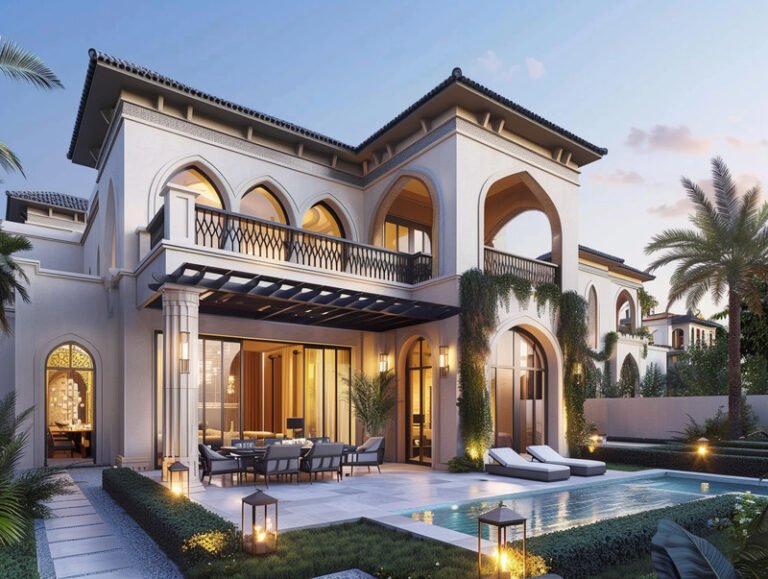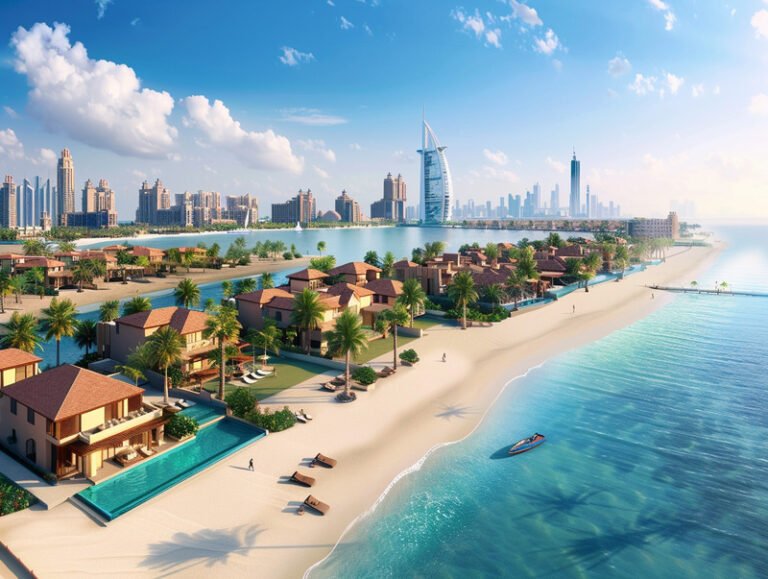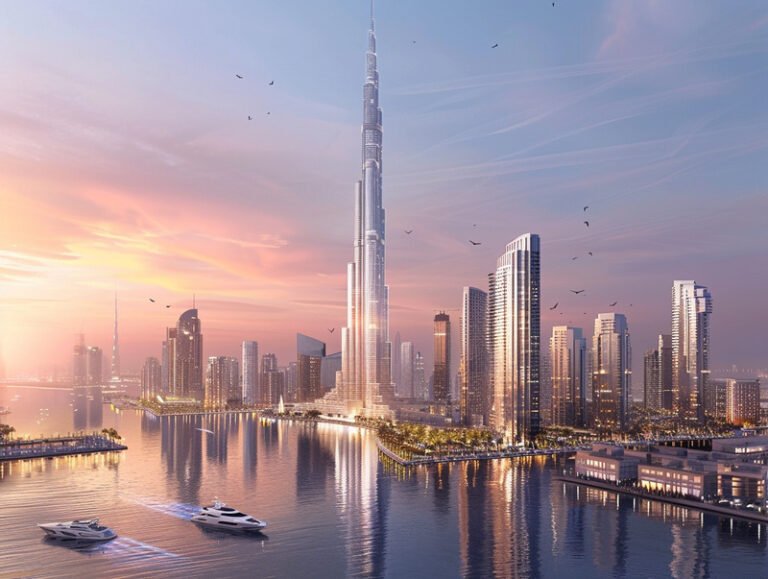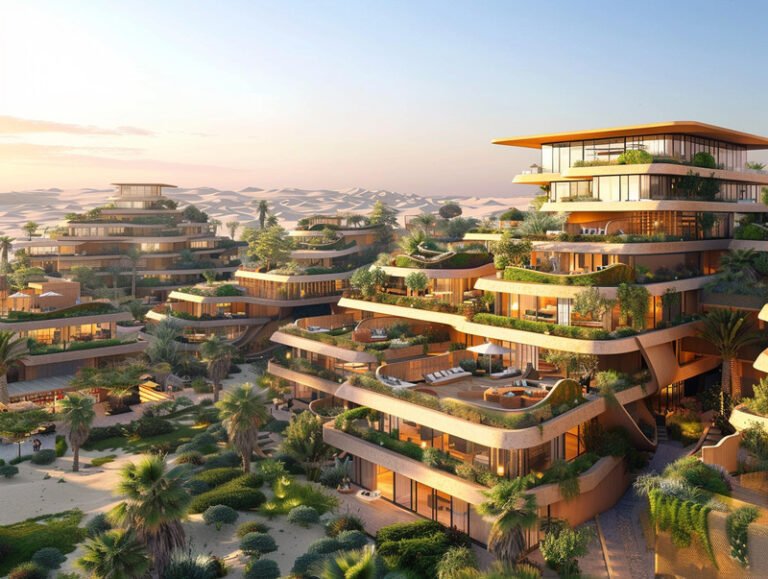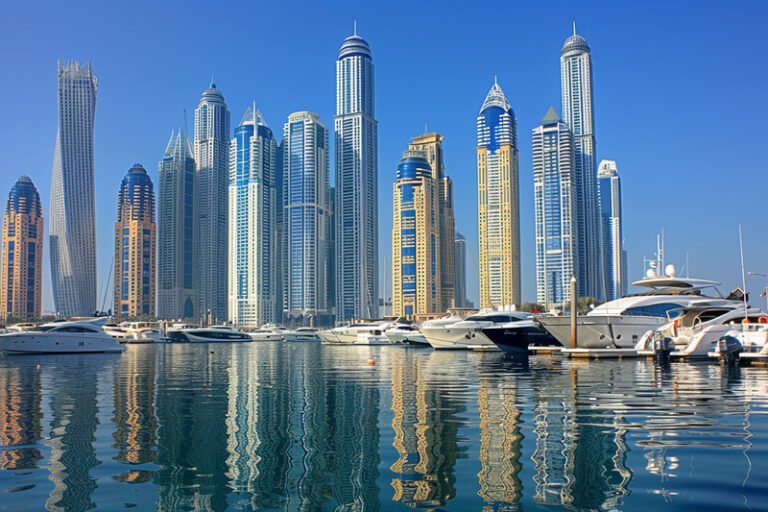Expected Timelines for the Completion of Off-Plan Projects

Understanding completion timelines is crucial when investing in off-plan property in Dubai. Typically, these projects take 18 to 36 months to complete, but various factors can influence this timeframe. The scale of development, market conditions, and regulatory changes all play a role in determining how long it will take for your property to materialize.
In Dubai's dynamic real estate market, larger projects like master-planned communities may take longer to complete than individual buildings. Factors such as infrastructure development and phased construction can extend timelines. It's essential to consider these aspects when making investment decisions.
Dubai's regulatory environment can impact project timelines. Recent initiatives aimed at streamlining construction processes may lead to faster completions. However, changes in building codes or permit requirements can potentially cause delays.
Market conditions significantly affect project timelines. Economic fluctuations, changes in demand, or shifts in investor sentiment can influence the pace of construction. During periods of high demand, developers may accelerate projects, while slower markets might lead to extended timelines.
Let us help you find the perfect property. Contact us to get started.
Investors should carefully review developer track records and project feasibility studies. This due diligence can provide insights into the likelihood of timely completion and help mitigate risks associated with potential delays.
Key Takeaways
In Dubai's dynamic real estate market, off-plan projects are a popular investment choice. These developments, sold before completion, offer attractive price points and potential for capital appreciation. However, understanding the expected timelines for off-plan projects is crucial for investors and buyers.
Typically, off-plan projects in Dubai take 18 to 36 months from launch to completion. This timeline can vary based on several factors, including project scale, complexity, and external conditions.
Residential projects generally complete faster, within 18 to 36 months. These include apartments, villas, and townhouses. Commercial projects, such as office buildings or retail spaces, may take longer, ranging from 24 to 60 months.
The development process encompasses several stages: planning, foundation, structural work, finishing, and handover. Each stage contributes to the overall timeline and can be affected by various factors.
Weather conditions, regulatory approvals, and market fluctuations can impact project timelines. Developers must navigate these challenges while keeping investors informed of progress and potential delays.
To manage investor expectations, reputable developers in Dubai provide regular updates on construction progress. Transparency about potential timeline extensions is crucial for maintaining trust and credibility in the market.
Typical Off-Plan Project Timelines
In Dubai's dynamic real estate market, off-plan property projects typically span 18 to 36 months from launch to completion. The timeline varies based on project scale and complexity. Smaller developments like low-rise apartments or townhouse complexes generally finish faster, while larger projects such as high-rise condominiums or mixed-use communities require more time.
The first 6 to 12 months focus on site preparation, foundation work, and initial construction. This phase is crucial in Dubai's unique desert environment, often requiring specialized techniques to ensure stability.
The main construction phase usually lasts 12 to 18 months. During this time, Dubai's skyline evolves as structures take shape, incorporating innovative designs and sustainable technologies.
The final 3 to 6 months involve interior finishes, landscaping, and final touches. In Dubai, this often includes luxurious amenities and smart home features to meet high-end market demands.
Timelines can be affected by factors like extreme weather conditions, supply chain issues, and regulatory approvals specific to Dubai. Some developers may extend timelines to manage cash flow or adapt to market fluctuations.
As a potential buyer in Dubai's off-plan market, consider possible delays when making decisions. Factor in the city's rapid growth and changing regulations, which can impact project timelines.
Factors Affecting Construction Schedules
Dubai's off-plan property market faces unique challenges in construction scheduling. Environmental factors, particularly the scorching summer heat, can significantly impact progress. Regulatory complexities and permit processes often cause delays, while market fluctuations affect project funding. Supply chain issues and labor availability also play crucial roles. Technical challenges in Dubai's iconic high-rise developments and last-minute design changes can further extend timelines. Understanding these factors is essential for investors in Dubai's real estate market.
Weather conditions in Dubai, especially during summer, can slow construction activities and reduce worker productivity. The extreme heat necessitates frequent breaks and limited working hours, affecting overall progress.
Regulatory hurdles and permit delays are common in Dubai's construction sector. Multiple government agencies are often involved, leading to time-consuming bureaucratic processes that can significantly impact project timelines.
Dubai's real estate market is sensitive to economic fluctuations. Changes in market conditions can affect a developer's ability to secure funding or maintain cash flow, potentially slowing down construction progress.
Supply chain disruptions, both local and global, can lead to material shortages and price fluctuations in Dubai. This can cause delays and budget overruns, affecting the overall construction schedule.
Labor availability and skill levels are critical factors in Dubai's construction industry. The city's rapid development often leads to high demand for skilled workers, which can impact project timelines if not managed effectively.
Technical complexities in Dubai's innovative and high-rise designs often require specialized expertise. This can lead to extended timelines as developers work to overcome unique engineering challenges.
Buyer-requested changes or unforeseen design modifications can cause delays in Dubai's off-plan projects. These alterations often require new approvals and plan adjustments, further extending the construction timeline.
Residential Vs. Commercial Timelines
In Dubai's dynamic real estate market, residential and commercial off-plan projects follow distinct timelines due to their unique complexities and scale. While both face similar challenges, the duration from groundbreaking to handover can vary significantly. Understanding these differences is crucial for investors and developers navigating Dubai's property landscape.
Residential projects in Dubai, including apartment buildings and villa communities, typically have shorter completion times. These developments usually take 18 to 36 months to complete, depending on their size and complexity. The relatively straightforward nature of residential construction allows for faster progress and quicker handovers.
Commercial off-plan projects in Dubai often require more extended timelines. Office buildings, shopping malls, and mixed-use complexes can take anywhere from 24 to 60 months or more to complete. The increased complexity, specialized construction techniques, and intricate systems integration contribute to longer development periods.
Factors such as project scale, location, and specific requirements can further extend commercial project timelines in Dubai. Larger developments may adopt a phased approach, with certain sections becoming operational while others are still under construction. This strategy allows for earlier revenue generation and risk mitigation.
Stages of Off-Plan Development
Off-plan development in Dubai progresses through five crucial stages, each vital for project success and timely completion. Understanding these stages helps investors monitor progress and anticipate completion dates.
The process begins with planning and design, followed by foundation work, structural development, finishing, and finally, handover. Each stage has its own timeline, influenced by project size and complexity. Delays can occur at any point, potentially extending the overall completion time.
Maintaining open communication with the developer is essential for staying informed about project timelines.
The planning and design stage involves architects and engineers creating detailed blueprints and obtaining necessary approvals. This phase sets the foundation for the entire project, ensuring compliance with Dubai's strict building regulations.
During the foundation stage, site preparation begins, and the groundwork is laid. This critical phase establishes the structural integrity of the building and can vary in duration depending on soil conditions and project scale.
The structural phase sees the building's framework come to life. Floors, walls, and the roof are constructed, giving shape to the envisioned property. This stage often provides the most visible progress to investors.
In the finishing phase, interior and exterior elements are added. Windows, doors, and utilities are installed, transforming the structure into a habitable space. This stage brings the property closer to its final form.
The handover stage marks the project's completion. The developer conducts quality assessments and prepares for ownership transfer. This final phase ensures the property meets all standards before being handed over to buyers.
Common Causes of Delays
In Dubai’s dynamic real estate market, off-plan project delays aren’t uncommon. The city’s ambitious developments often face unique challenges that can extend timelines. While developers strive to meet deadlines, various factors can impede progress. Project delays can stem from issues such as permit and regulatory hurdles, supply chain disruptions, and even unforeseen environmental factors. However, experienced developers understand the importance of actively managing and handling delays to minimize their impact on the overall project timeline. By implementing effective crisis management strategies and maintaining open communication channels with stakeholders, developers can successfully navigate through challenges and ultimately deliver successful projects.
Weather conditions, particularly sandstorms and extreme heat, can slow construction in Dubai. The city's rapid growth also leads to occasional labor shortages, impacting project timelines. Supply chain disruptions, given Dubai's reliance on imported materials, can cause significant delays.
Dubai's evolving regulatory landscape may necessitate project adjustments, leading to extended timelines. Changes in building codes or environmental regulations can require design modifications. Additionally, the emirate's complex permitting process can sometimes cause unexpected delays.
Financial fluctuations in the global market can affect Dubai's real estate sector, potentially causing funding issues for developers. This can result in slowed construction or temporary work stoppages.
Lastly, technical challenges unique to Dubai's ambitious architectural designs may arise during construction, requiring time-consuming solutions.
Managing Investor Expectations
Managing investor expectations is crucial in Dubai's dynamic real estate market, especially for off-plan projects. Developers and real estate professionals must communicate effectively with investors throughout the project's lifecycle. This involves providing realistic timelines, accounting for potential setbacks, and offering regular updates. Transparency about challenges and delays is key, along with educating investors on the complexities of off-plan developments in Dubai's unique environment.
Start by creating a detailed timeline that considers Dubai's specific regulatory requirements and construction challenges. Update this timeline regularly as the project progresses, keeping investors informed of any changes.
Be open about potential hurdles, such as regulatory updates or supply chain issues affecting Dubai's construction sector. Provide context on how these factors might impact the project timeline.
Offer frequent progress reports, including photos or videos of the construction site. This visual documentation helps investors stay connected to the project's development in Dubai's rapidly evolving skyline.
Establish a dedicated communication channel for investor queries. This could be a specific email address or a hotline managed by your Dubai-based team.
If delays occur, have a contingency plan ready. This might include offering compensation such as guaranteed returns or additional amenities, in line with Dubai's real estate regulations.
Legal Considerations for Timeline Extensions
In Dubai's real estate sector, extending project timelines requires navigating complex legal considerations. The Real Estate Regulatory Agency (RERA) has established strict guidelines for timeline extensions to protect developers and investors. Developers must provide substantial evidence of unavoidable delays, such as force majeure events or unforeseen technical issues, to justify extension requests. Careful review of contracts is essential, as they often contain specific procedures for timeline extensions.
Proper communication with investors is crucial. Developers must promptly and transparently inform investors of any changes to avoid potential legal disputes or penalties. RERA mandates approval for extensions beyond a six-month threshold.
To obtain approval, developers must submit a comprehensive report detailing the reasons for the delay and the proposed new completion date. Upon approval, developers are required to update their project's escrow account and adjust payment schedules accordingly.
Non-compliance with these legal requirements can result in severe consequences. Developers may face fines, project cancellation, or even license revocation if they fail to adhere to RERA's guidelines and regulations.
Developers should maintain thorough documentation throughout the extension process. This includes correspondence with RERA, investors, and other relevant parties to ensure a clear record of all decisions and actions taken.
Impact of Market Conditions
Market conditions significantly influence off-plan project timelines in Dubai, often causing unexpected shifts in completion dates. During economic booms, projects typically progress faster due to increased resources and labor availability. However, economic downturns can lead to delays from funding issues or reduced workforce. Supply chain disruptions, particularly in building materials, can also slow construction progress. Interest rates play a crucial role, with low rates potentially accelerating projects and high rates causing delays or cancellations. Market demand affects timelines too; high demand may expedite completion, while low demand might slow construction. Government regulations and policies can also impact project schedules, potentially requiring plan adjustments.
In Dubai's real estate market, oil prices significantly influence project timelines. Higher oil prices often lead to increased investment and faster project completions. Conversely, lower oil prices can result in project delays or cancellations.
Dubai's property market cycles affect off-plan project timelines. During upswings, developers may accelerate construction to capitalize on high demand. In downturns, they might slow down to avoid oversupply.
Expo 2020 Dubai has had a notable impact on project timelines. Many developments were fast-tracked to coincide with the event, while others experienced delays due to resource allocation priorities.
Dubai's ambitious urban development plans, such as Dubai 2040 Urban Master Plan, can influence project timelines. Developers may adjust their schedules to align with these long-term visions.
The emirate's tourism sector affects real estate project timelines, especially for hospitality-related developments. Fluctuations in tourist numbers can lead to accelerated or delayed completions.
Mitigating Risks in Off-Plan Investments
Mitigating risks in off-plan investments in Dubai requires a strategic approach tailored to the city's unique real estate market. As one of the world's most dynamic property markets, Dubai offers exciting opportunities but also presents specific challenges. Investors must navigate local regulations, market fluctuations, and the emirate's rapid development pace.
By employing thorough due diligence and understanding Dubai's property landscape, investors can minimize potential pitfalls and maximize their chances of success in off-plan investments.
Research the developer's track record in Dubai, focusing on their completed projects in the emirate. Verify their RERA (Real Estate Regulatory Agency) registration and compliance with local regulations. Review the developer's financial stability and reputation within Dubai's real estate community.
Scrutinize the contract terms, ensuring they align with Dubai's real estate laws and protect your interests. Hire a local lawyer specializing in Dubai property law to review all documents before signing. Verify the project's legal status, including necessary permits and approvals from Dubai authorities.
Diversify your investment portfolio across different areas of Dubai and various types of properties. Stay informed about Dubai's market trends, upcoming developments, and economic factors that could impact property values in specific neighborhoods.
Factor in potential delays and cost overruns common in Dubai's fast-paced construction environment. Maintain a financial buffer to cover unexpected expenses and consider the impact of VAT on your investment.
Conduct regular site visits during construction to monitor progress and address any concerns promptly. Consider purchasing specialized real estate investment insurance available in Dubai to protect against project abandonment or developer insolvency.
Case Studies: Successful Completions
Dubai's real estate market offers numerous examples of successful off-plan projects that have boosted investor confidence. These case studies demonstrate the potential rewards of well-planned developments and provide valuable insights for prospective buyers. By examining real-world examples, investors can better understand the opportunities and risks associated with off-plan investments in Dubai.
Two notable success stories stand out in Dubai's off-plan landscape: Dubai Marina and Downtown Dubai.
Dubai Marina, launched in 2003, transformed a desert stretch into a thriving waterfront community. The project was completed in phases, with many residential towers finished on or ahead of schedule. Early investors have seen significant returns on their investments.
Downtown Dubai, home to the iconic Burj Khalifa, is another triumph. Initiated in 2004, this mixed-use development has become a major landmark and tourist destination. Residential components were delivered in stages, with many units completed on time.
These projects highlight the potential of well-executed off-plan developments. Investors who carefully chose their investments have benefited from capital appreciation and rental income opportunities.
Conclusion
Off-plan project timelines in Dubai are crucial for investors to understand. Typical completion periods range from 18 to 36 months, but various factors can influence these schedules. The city's real estate market is dynamic, with numerous developments underway at any given time.
Investors must be aware of the stages of development, from initial planning to final handover. These stages include foundation work, structural construction, interior finishing, and obtaining necessary approvals from Dubai authorities.
Potential causes of delays in Dubai's off-plan projects include economic fluctuations, regulatory changes, and supply chain disruptions. The city's ambitious growth plans can sometimes lead to unexpected challenges in project execution.
Legal considerations are paramount in Dubai's real estate sector. Investors should familiarize themselves with the Dubai Land Department's regulations and the Off-Plan Property Sales Law (Law No. 13 of 2008).
Staying informed about Dubai's market conditions is essential for successful off-plan investments. This includes monitoring property trends, infrastructure developments, and government initiatives that may impact project timelines.
Risk mitigation strategies are crucial when investing in Dubai's off-plan properties. These may include thorough due diligence on developers, understanding payment plans, and considering project location and potential.
Let us help you find the perfect property. Contact us to get started.

